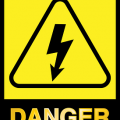06 FEBRUARY 2019
DE FAAKTO OUTBREAK INTELLIGENCE
SITREP-STATS
CHOLERA IN AFRICA
WORLD HEALTH ORGANIZATION
CHOLERA DEATH RATES IN AFRICA
The Count by Country-Reported DEATHS Varied reporting periods January 2018-January 2019
- Burundi 2
- Cameroon 58
- DRC Congo 1042
- Kenya 2
- Niger 78
- Tanzania 1
- Uganda 2
- Zimbabwe 68
- Angola 2
- Total Deaths 1255
WHO https://apps.who.int/iris/bitstream/handle/10665/279981/OEW05-2601022019.pdf
About Cholera
- Cholera is an acute diarrhoeal infection caused by ingestion of food or water contaminated with the bacterium Vibrio cholerae
- Cholera remains a global threat to public health and an indicator of inequity and lack of social development
- Researchers have estimated that every year, there are roughly 1.3 to 4.0 million cases, and 21 000 to 143 000 deaths worldwide due to cholera (WHO)
Symptoms
- Cholera is an extremely virulent disease that can cause severe acute watery diarrhoea
- It takes between 12 hours and 5 days for a person to show symptoms after ingesting contaminated food or water
- Cholera affects both children and adults and can kill within hours if untreated
- Most people infected with V. cholerae do not develop any symptoms
- Bacteria are present in their faeces for 1-10 days after infection and are shed back into the environment, potentially infecting other people
- A minority develop acute watery diarrhoea with severe dehydration
- This can lead to death if left untreated (WHO)
Prevention & Control
- A multifaceted approach is key to control cholera, and to reduce deaths
- A combination of surveillance, water, sanitation and hygiene, social mobilisation, treatment, and oral cholera vaccines are used (WHO)
Treatment
- Prompt administration of oral rehydration solution (ORS)
- The WHO/UNICEF ORS standard sachet is dissolved in 1 litre (L) of clean water
- Adult patients may require up to 6 L of ORS to treat moderate dehydration on the first day
- Severely dehydrated patients are at risk of shock and require the rapid administration of intravenous fluids
- Appropriate antibiotics to diminish the duration of diarrhoea
- Oral rehydration should be available in communities, in addition to larger treatment centres that can provide intravenous fluids and 24 hour care
- With early and proper treatment, the case fatality rate should remain below 1%.
- Zinc is an important adjunctive therapy for children under 5, which also reduces the duration of diarrhoea and may prevent future episodes of other causes of acute watery diarrhoea
- Breastfeeding should also be promoted (WHO)
Hygiene
- Promote the adoption of appropriate hygiene practices such as hand-washing with soap
- Safe preparation and storage of food and safe disposal of the faeces of children (WHO)
- Funeral practices for individuals who die from cholera must be adapted to prevent infection among attendees
Oral Vaccines
- Currently there are three WHO pre-qualified oral cholera vaccines (OCV): Dukoral®, Shanchol™, and Euvichol-Plus®. All three vaccines require two doses for full protection
- Based on the available evidence
- OCV should be used in areas with endemic cholera, in humanitarian crises with high risk of cholera, and during cholera outbreaks; always in conjunction with other cholera prevention and control strategies
- Vaccination should not disrupt the provision of other high priority health interventions to control or prevent cholera outbreaks (WHO)
WHO Fact Sheet-Cholera https://www.who.int/en/news-room/fact-sheets/detail/cholera






